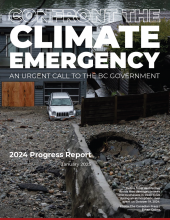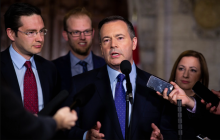Feb. 5, 2025
U.S. President Donald Trump threatens to place tariffs on “Canadian” oil and gas exports and poof! The climate crisis has disappeared from the political radar of Canadian politicians. Could we not try, for a minute, to keep our heads about us and remember the bigger threat that is poised to swallow us all up?










